
Rethinking the Top 18: Big Ten Football Stadiums Re-Ranked from Last to First
Only nine weeks remain until the 2025 college football season kicks off in Dublin, Ireland, with
Iowa State
playing
Kansas State
. We’re less than 10 weeks away from the Big Ten season, which begins on Thursday, Aug. 28, with Wisconsin-Miami (Ohio), Rutgers-Ohio, Minnesota-Buffalo and
Nebraska-
Cincinnati.
Unlike last year, the Big Ten did not undergo significant changes this offseason. June 2024 was spent projecting the upcoming performance of new members
USC
,
UCLA
,
Oregon
and
Washington
, and speculating on how those respective performances would affect the conference landscape. The answer: Oregon won the conference title, USC and Washington moderately struggled but made a bowl game, and UCLA showed steady growth under first-year coach DeShaun Foster.
That landscape has significantly more clarity entering 2025. One facet, specifically, that gained clarity in 2024 is how the West Coast locations compare to the Big Ten’s classic football venues. All four new locations showed well, with one doing so more than the rest.
For more, here is where each falls in our updated Big Ten football stadium power rankings, Summer 2025 edition.
18. SHI Stadium (Rutgers
Scarlet Knights
)
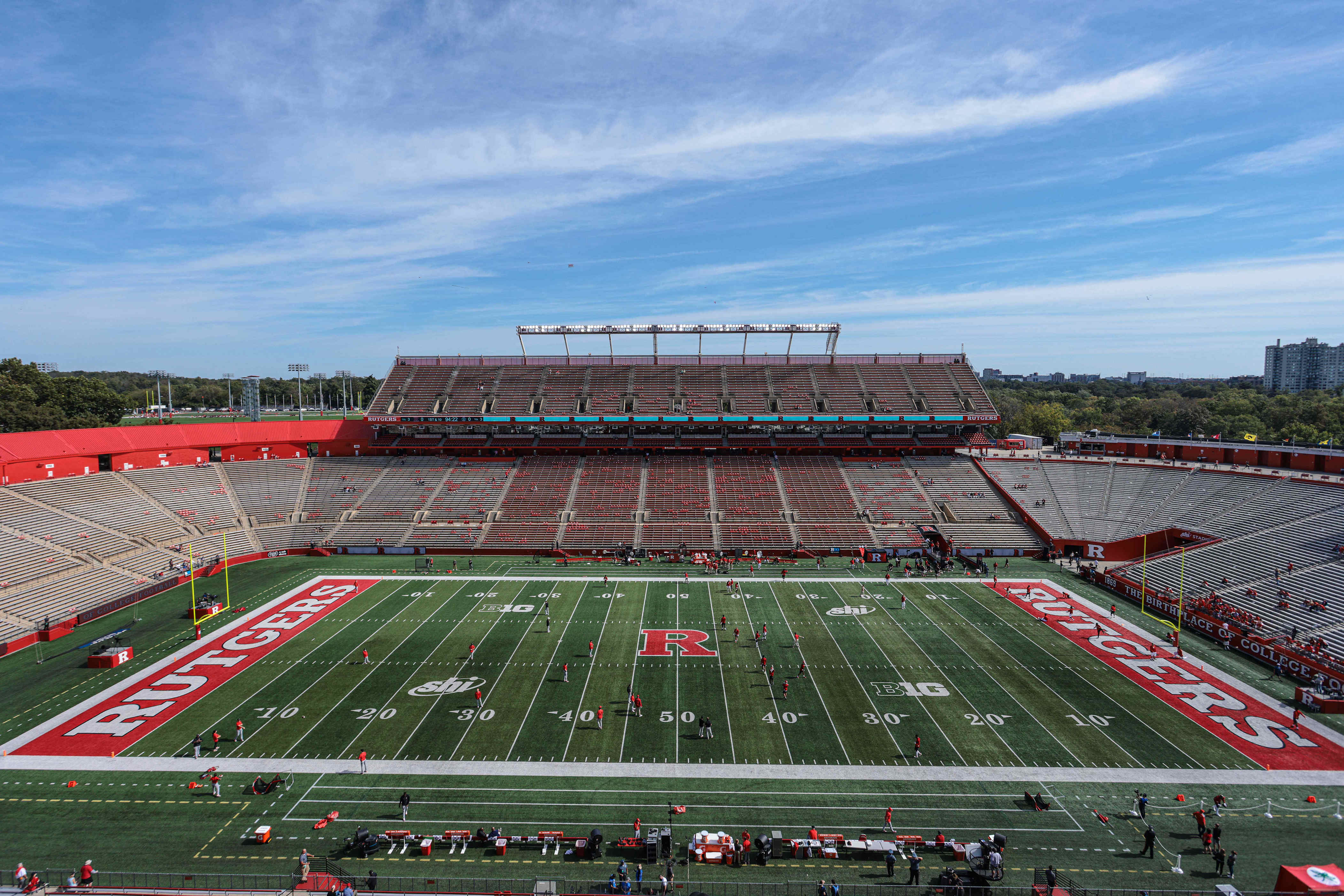
Capacity:
52,454
Opened:
1994
Rutgers’ stadium lacks any distinctive characteristic, other than it being located nearly 3,000 miles away from Eugene, Oregon. Cross-country travel is the biggest headline when the West Coast members visit the Scarlet Knights.
17. SECU Stadium (Maryland Terrapins)
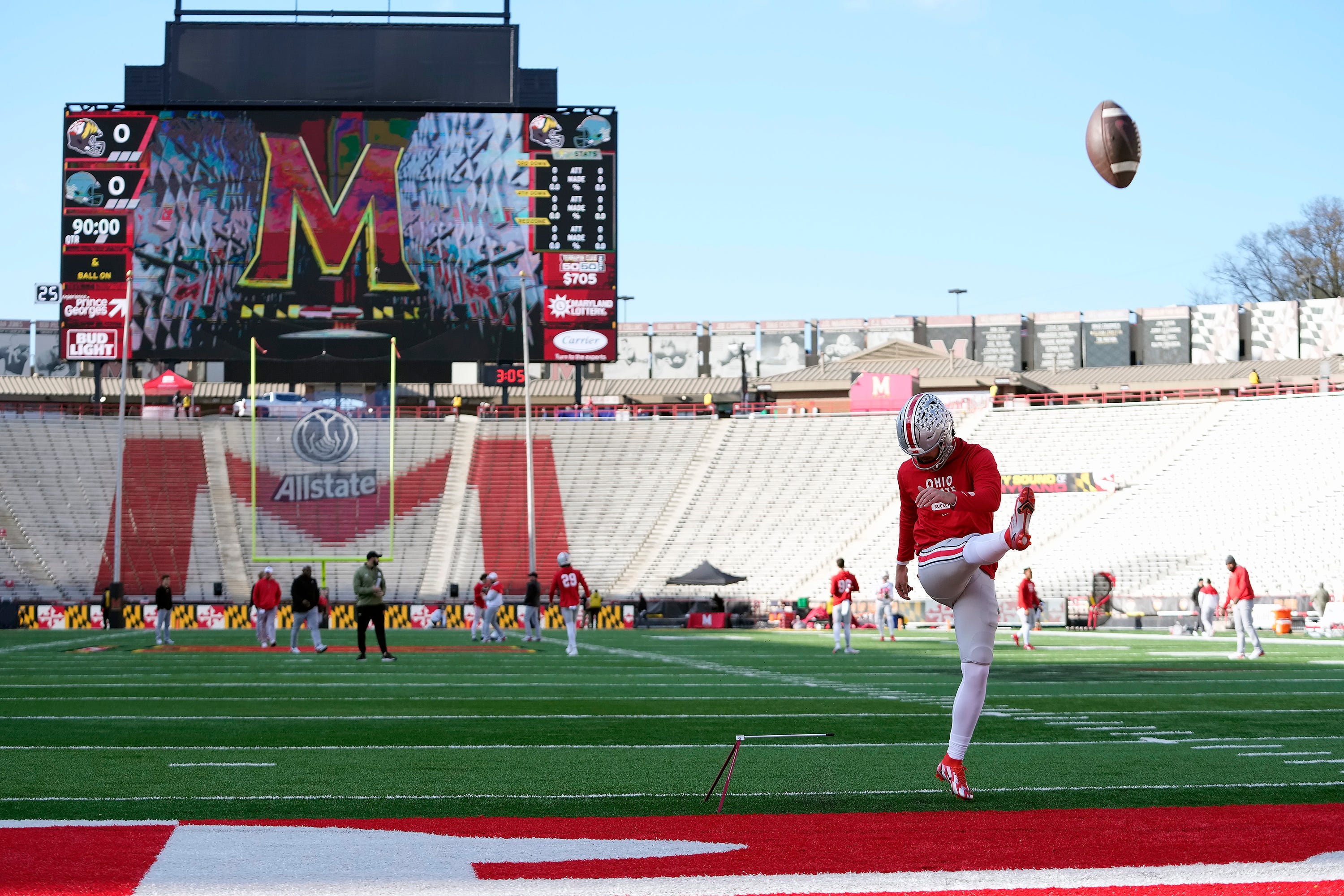
Capacity:
51,802
Opened:
1950
Maryland’s stadium, like Rutgers’, lacks a clear identity. The building will be 75 years old in 2025 and has some history: It has hosted 10 Division I NCAA Men’s Lacrosse Championships. It doesn’t have much football history, however.
16. Ross-Ade Stadium (Purdue
Boilermakers
)
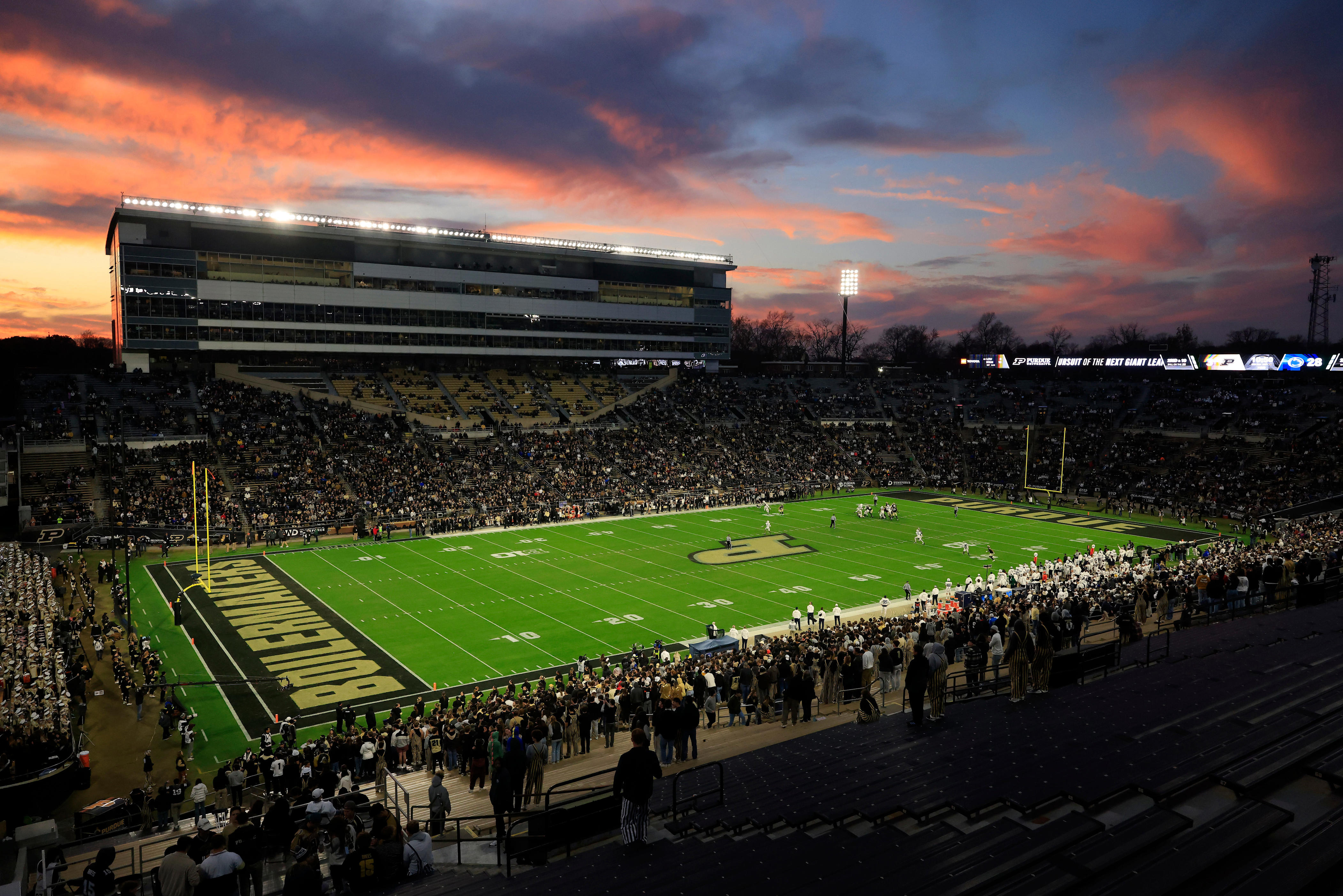
Capacity:
57,236
Opened:
1924
Don’t mistake these bottom-tier rankings as a declaration that the stadiums are poor. Now that Northwestern’s old Ryan Field is gone, no program in the conference has a truly bad home venue. Ross-Ade Stadium has a clear identity when Purdue is good, especially during the Jeff Brohm era from 2017-22. Still, the building itself leaves much to be desired. Much of the stadium is more than 100 years old, and it shows.
15. Huntington Bank Stadium (Minnesota Golden Gophers)
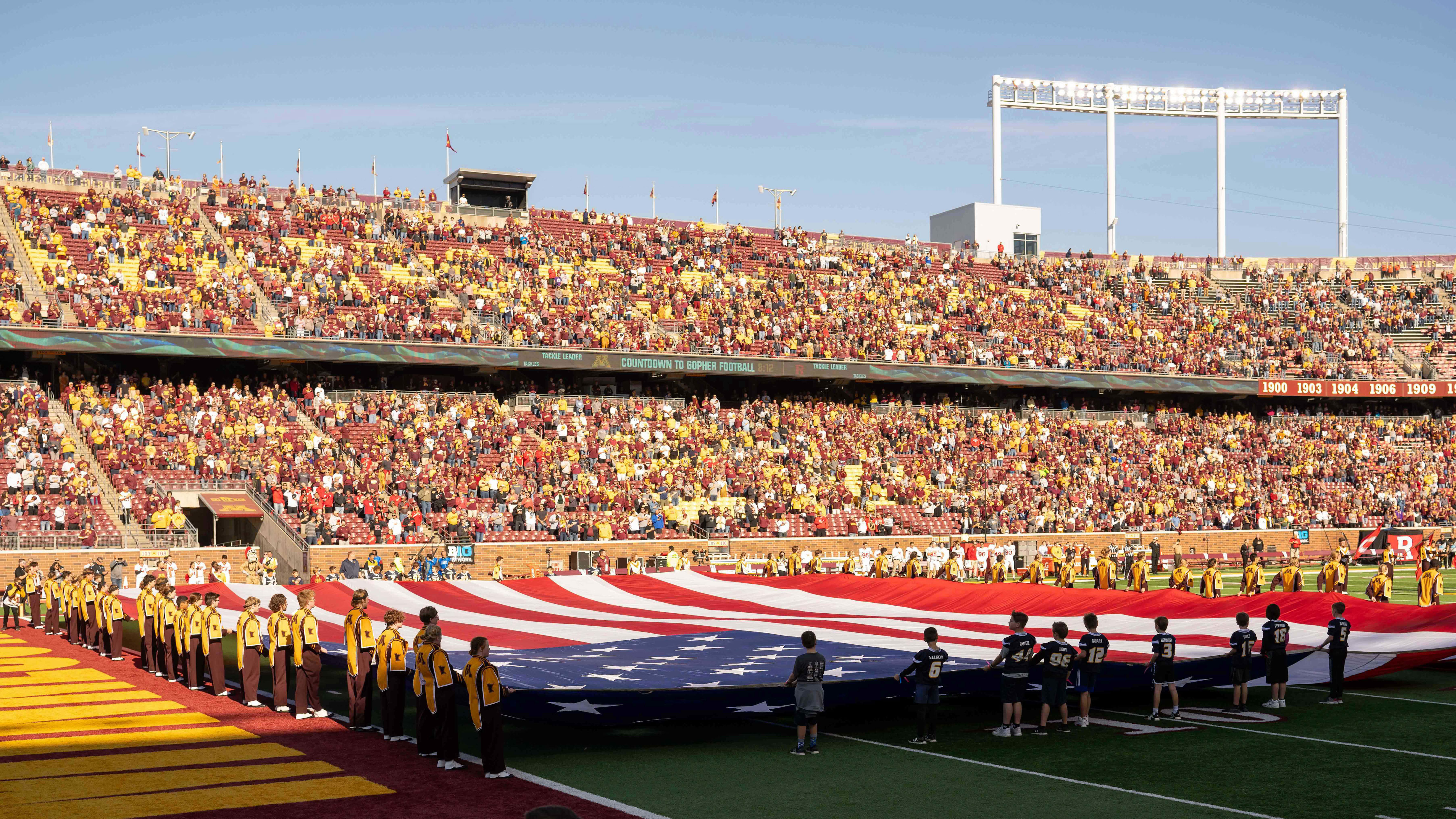
Capacity:
50,805
Opened
:
2009
Minnesota’s Huntington Bank Stadium has a chance to rise in these rankings. Its on-campus location and clear college feel are far superior to the program’s former home, the Metrodome, from 1982-2008.
14. Memorial Stadium (
Illinois Fighting Illini
)
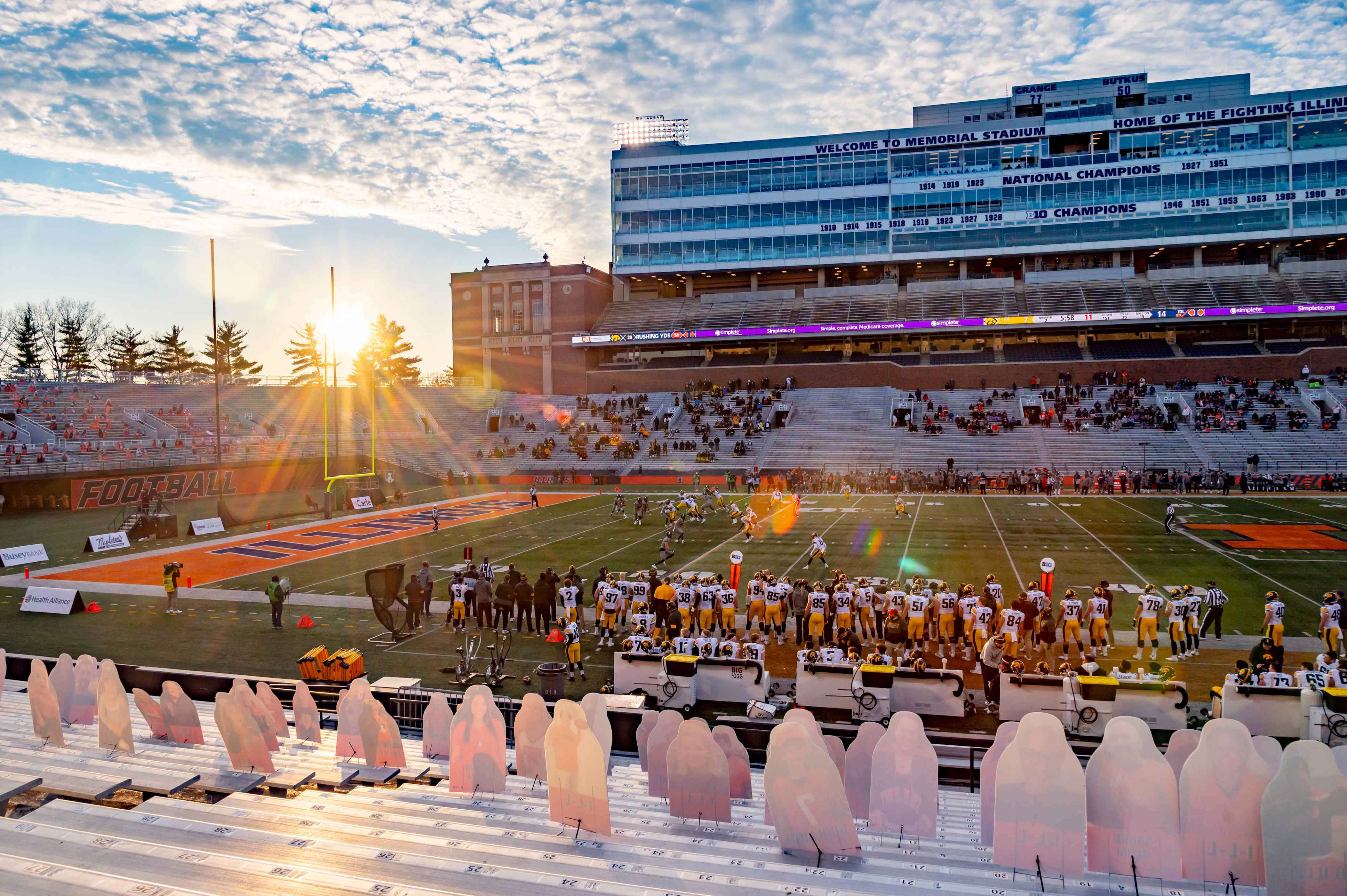
Capacity:
60,670
Opened
:
1923
Illinois delivered arguably the best season in Memorial Stadium history in 2024, finishing with 10 wins and a No. 16 national ranking. The stadium itself is fine. It blends in with many other Midwest venues. Illinois delivering on sky-high expectations in 2025 could see the stadium’s in-game environment improve, which would help this ranking.
14. Lanny and Sharon Martin Stadium (
Northwestern Wildcats
)
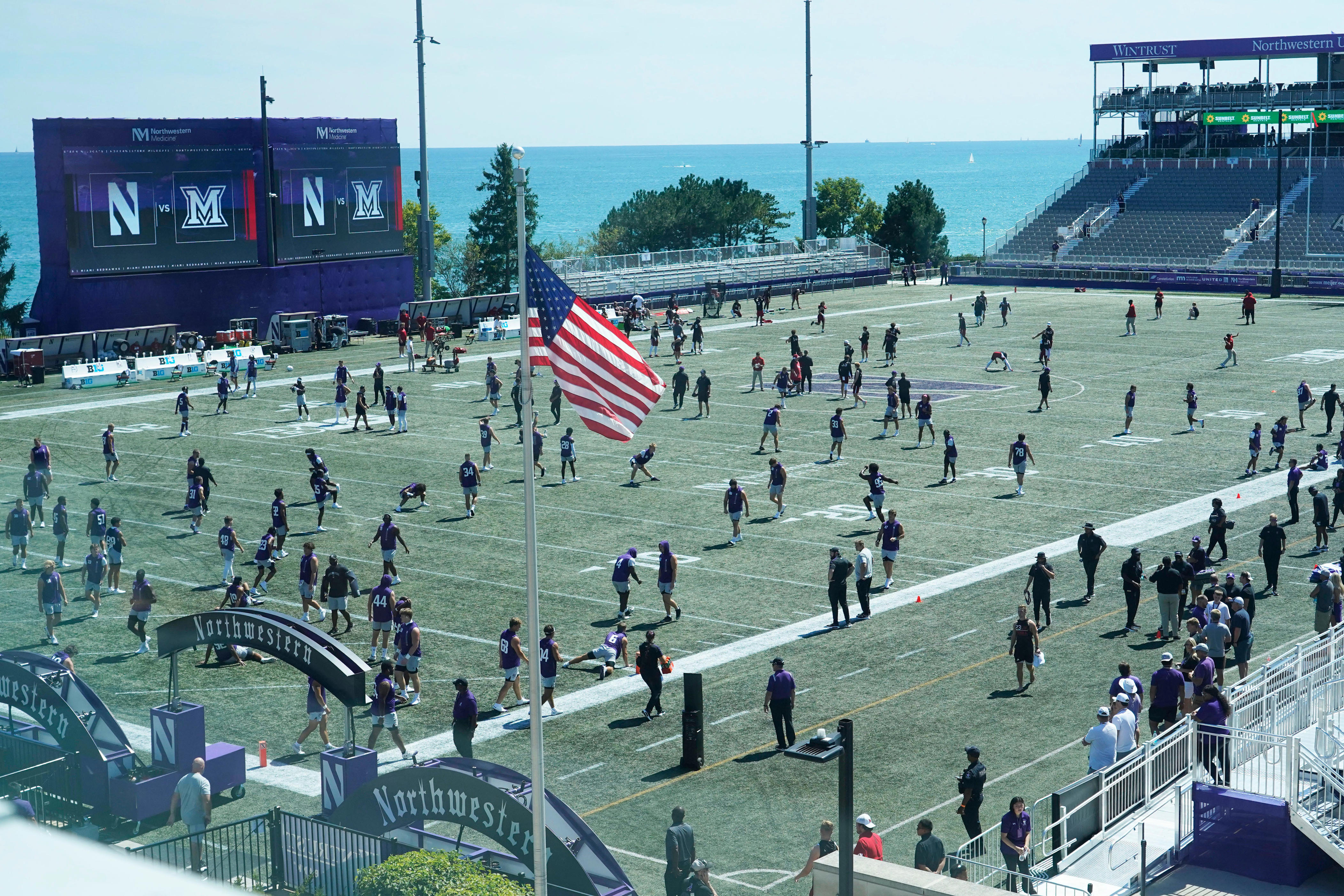
Capacity:
12,023
Opened:
2024 (temporary)
Northwestern’s temporary lakefront venue is almost as much of a practice field as it is a Big Ten football stadium. However, it deserves points for its unique feel. The views of Lake Michigan are terrific and the stadium environment is far better than the old Ryan Field, even with a 12,000-seat capacity and high ticket prices.
12. Memorial Stadium (Indiana Hoosiers)
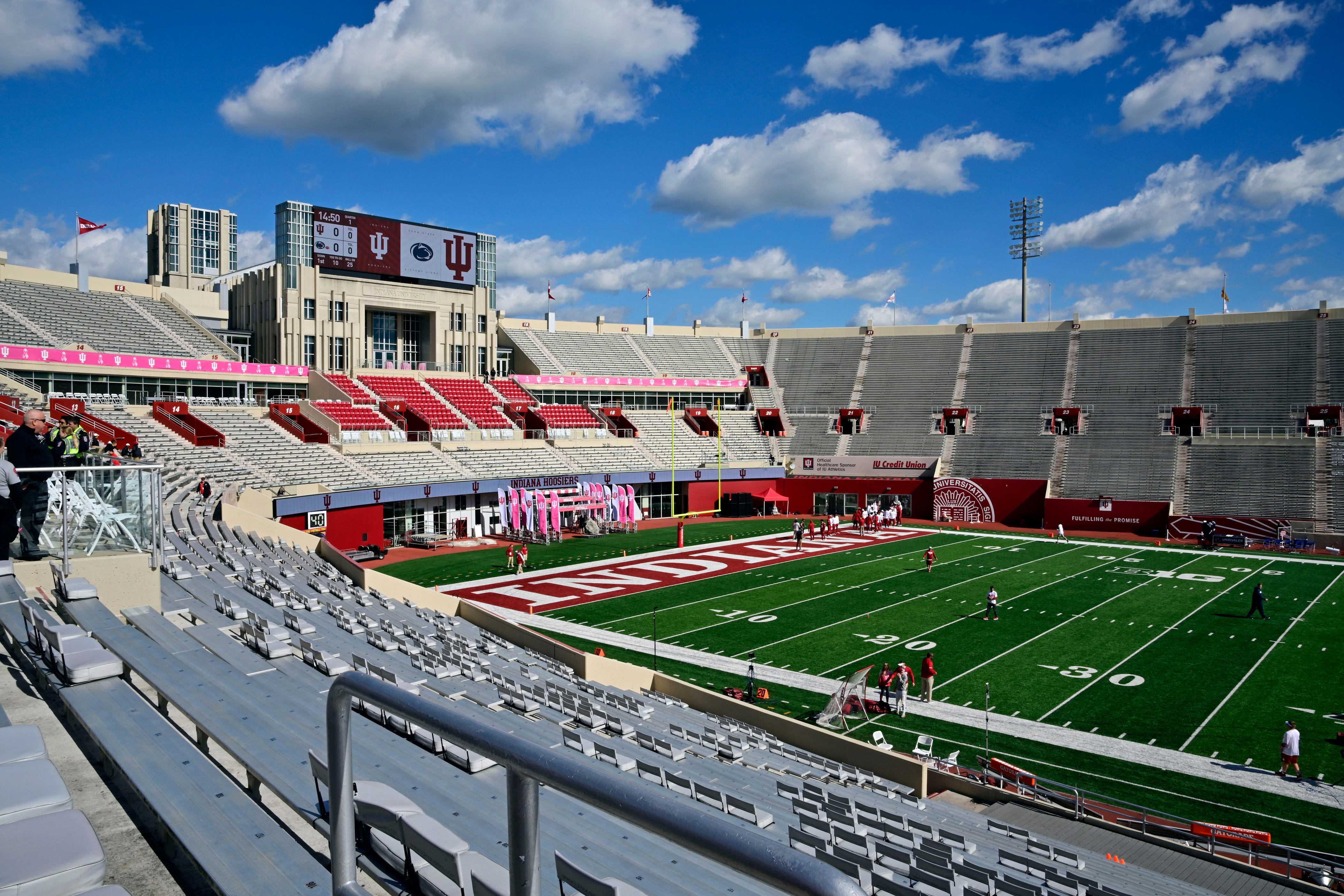
Capacity:
52,626
Opened:
1960
Indiana’s stadium falls into a category with Illinois: Midwest venues that all feel and look the same. Indiana’s Memorial Stadium has a bit more potential than the Illini’s Memorial Stadium, due to the fan turnout and enthusiasm during Curt Cignetti’s record-setting first year in charge. This venue is one to watch entering 2025.
11. Spartan Stadium (Michigan State Spartans)
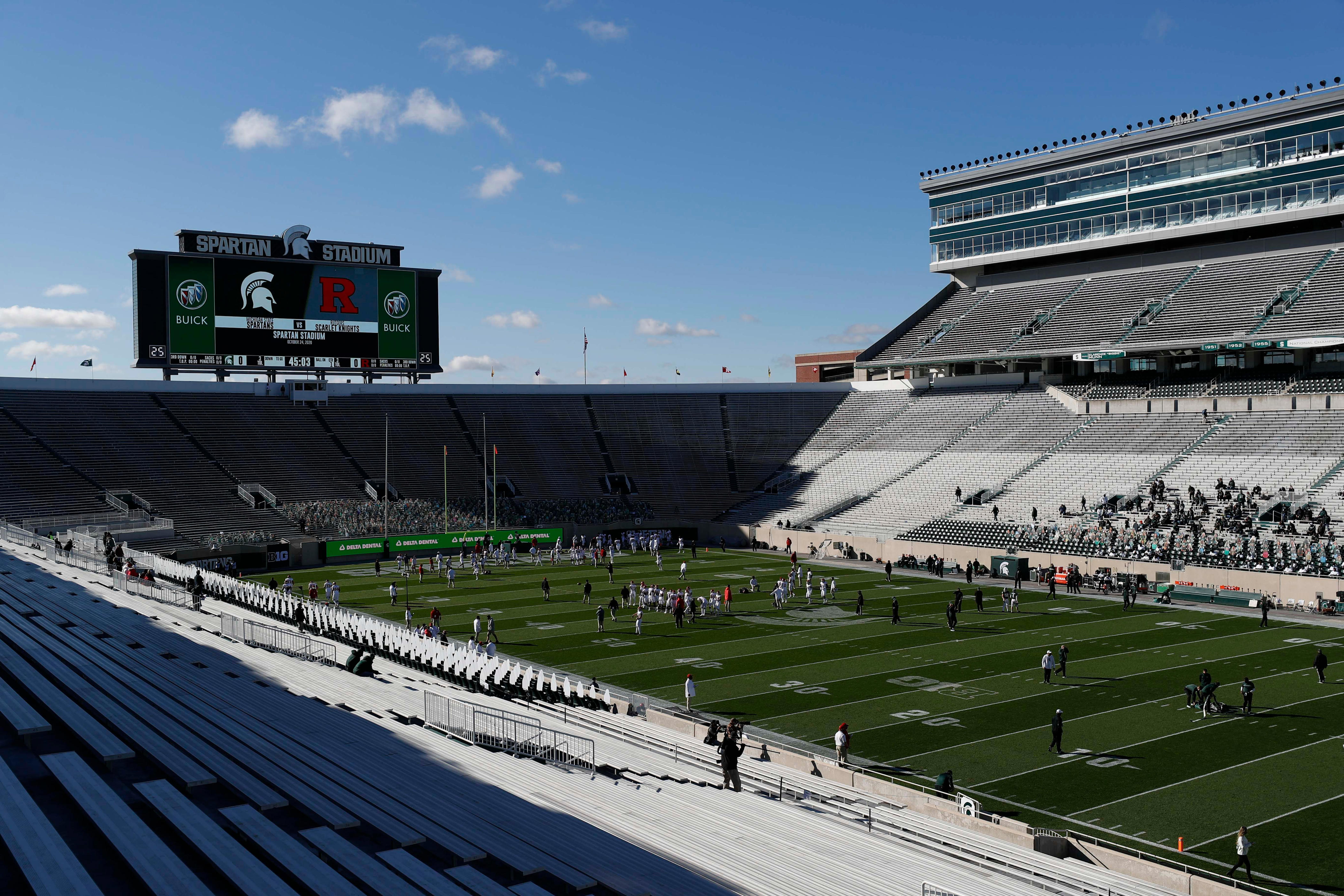
Capacity:
75,005
Opened:
1923
Spartan Stadium is a Big Ten classic. It creates a unique game-day feel, which is an important data point for this ranking. Michigan State’s biggest issue at the moment is catching back up to the conference’s best.
Get more (Michigan State) news, analysis and opinions on
Spartans Wire
10. L.A Memorial Coliseum (USC
Trojans
)
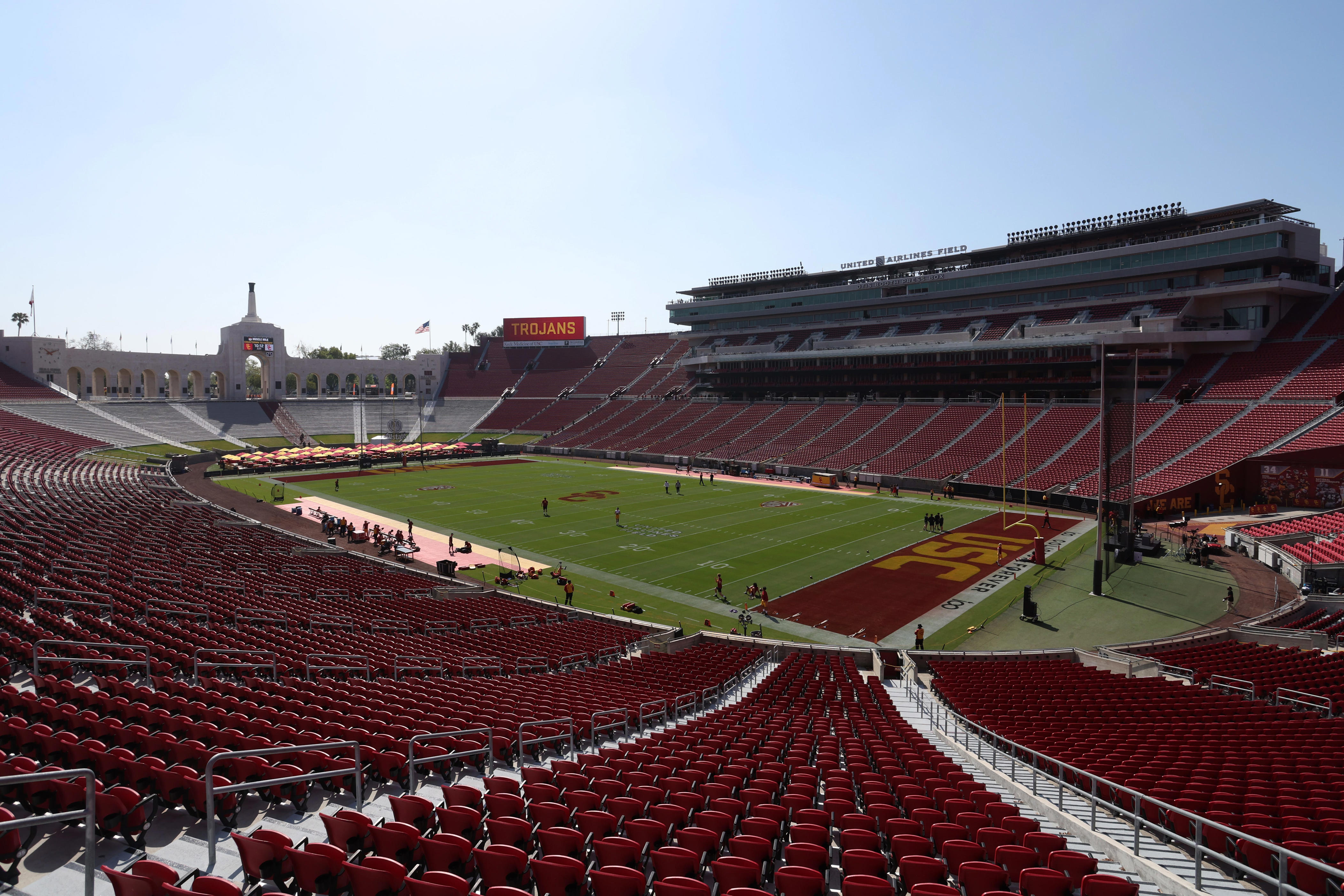
Capacity:
77,500
Opened
:
1923
L.A. Memorial Coliseum would rank among the top venues in the Big Ten if non-football events were considered. The venue has hosted two Summer Olympics (1932 and 1984 — plus another upcoming in 2028), the Los Angeles Rams (1946-79, 2016-19), the Los Angeles Dodgers (1958-61), a Super Bowl (I) and more. Unfortunately, USC football struggles to bring the same terrific in-game environment that those events did.
Get more (USC) news, analysis and opinions on
Trojans Wire
9. Michigan Stadium (Michigan Wolverines)
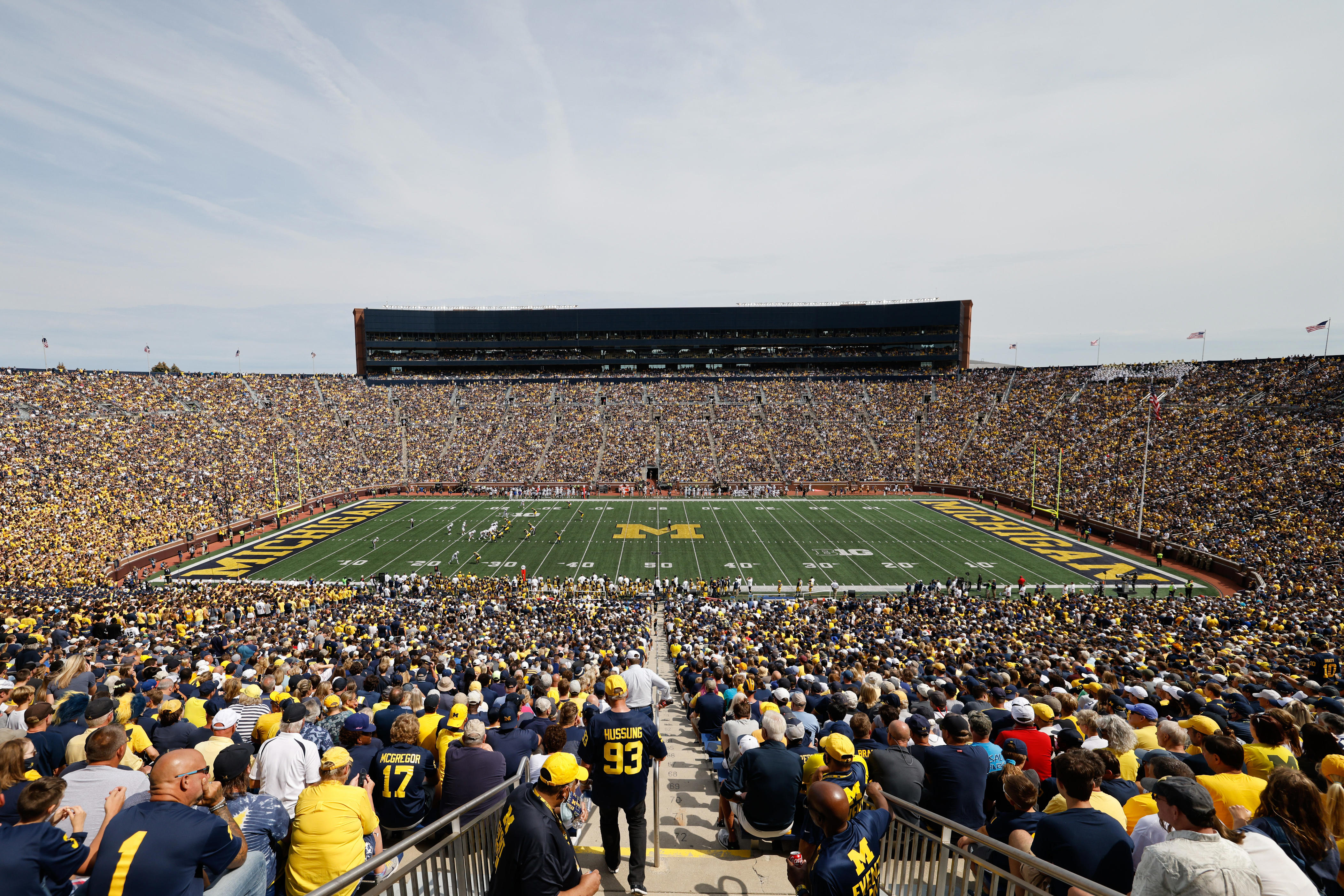
Capacity:
107,601
Opened:
1927
As we noted last year, Michigan Stadium is the most overrated of any venue in the sport. It is the largest stadium in the country. But since the stadium was built out more than up, a significant chunk of those seats are located a significant distance from the field itself. Michigan’s program history and success give this building significant history, which counts toward this ranking. But the actual in-game environment is not close to the conference’s best.
Get more (Michigan) news, analysis and opinions on
Wolverines Wire
8. Memorial Stadium (Nebraska
Cornhuskers
)
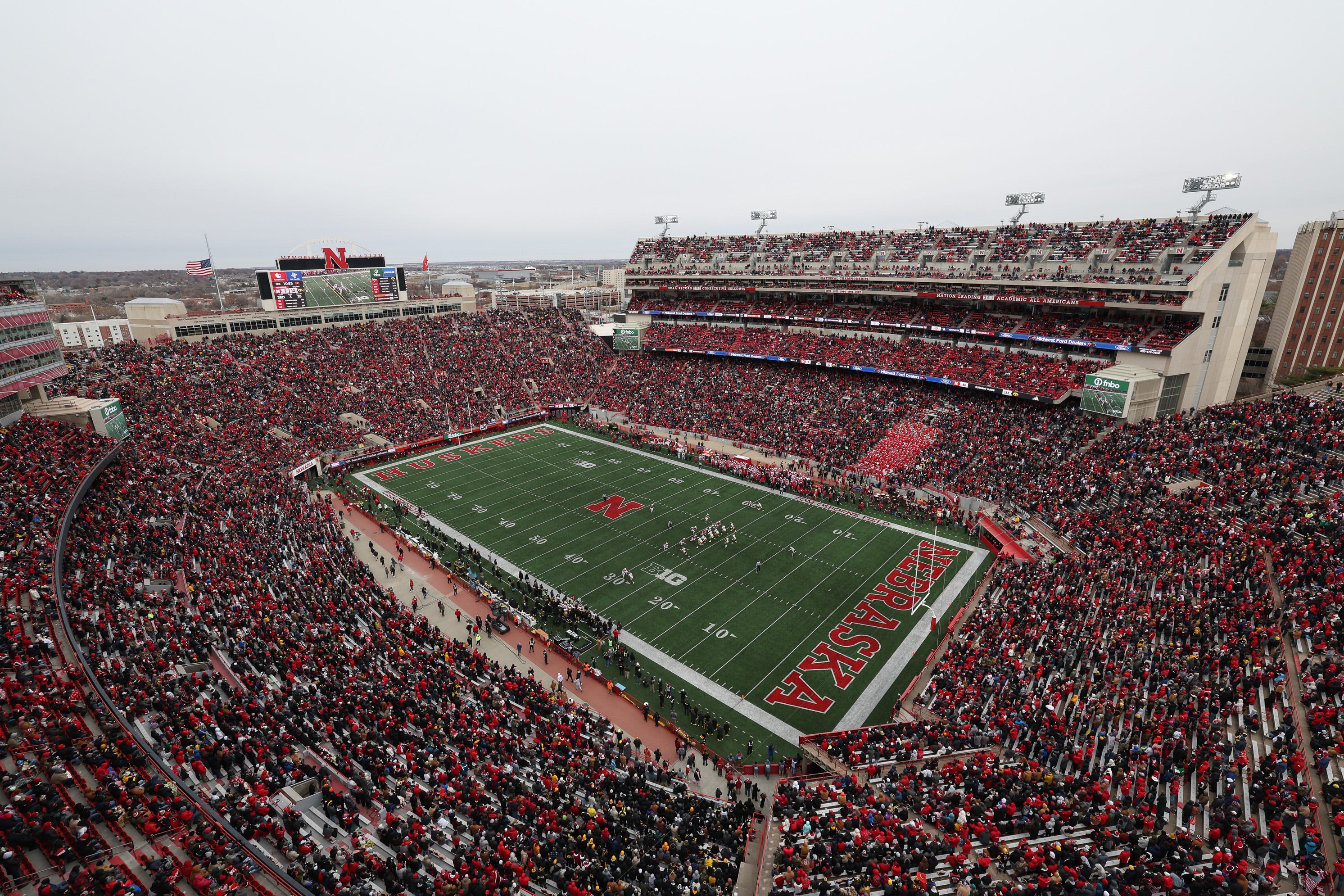
Capacity:
85,458
Opened:
1923
Nebraska’s Memorial Stadium can be one of the sport’s best venues when the Cornhuskers are good. Of course, the program has performed below expectations nearly every year since joining the Big Ten in 2011. The venue’s ranking receives a minor downgrade for the number of empty seats during the
program’s record sellout streak
.
Get more (Nebraska) news, analysis and opinions on
Cornhuskers Wire
7. Kinnick Stadium (Iowa Hawkeyes)
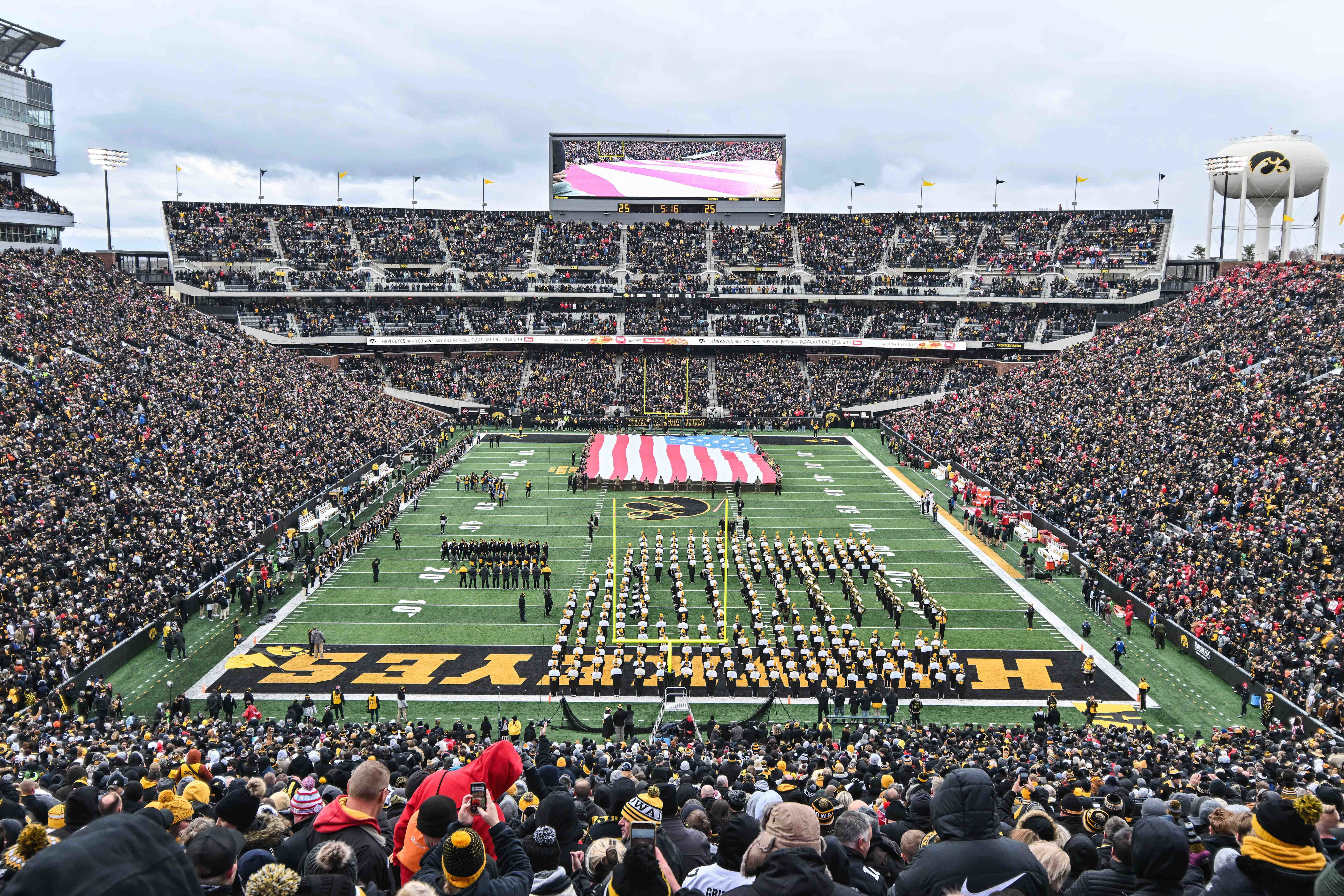
Capacity:
69,250
Opened:
1929
Kinnick Stadium has become a Big Ten classic. It creates a fantastic in-game environment, has a clear identity and importantly, has established a terrific tradition: the “Hawkeye Wave.” Its No. 7 ranking has much to do with the quality of the conference’s other venues.
Get more (Iowa) news, analysis and opinions on
Hawkeyes Wire
6. Husky Stadium (Washington Huskies)
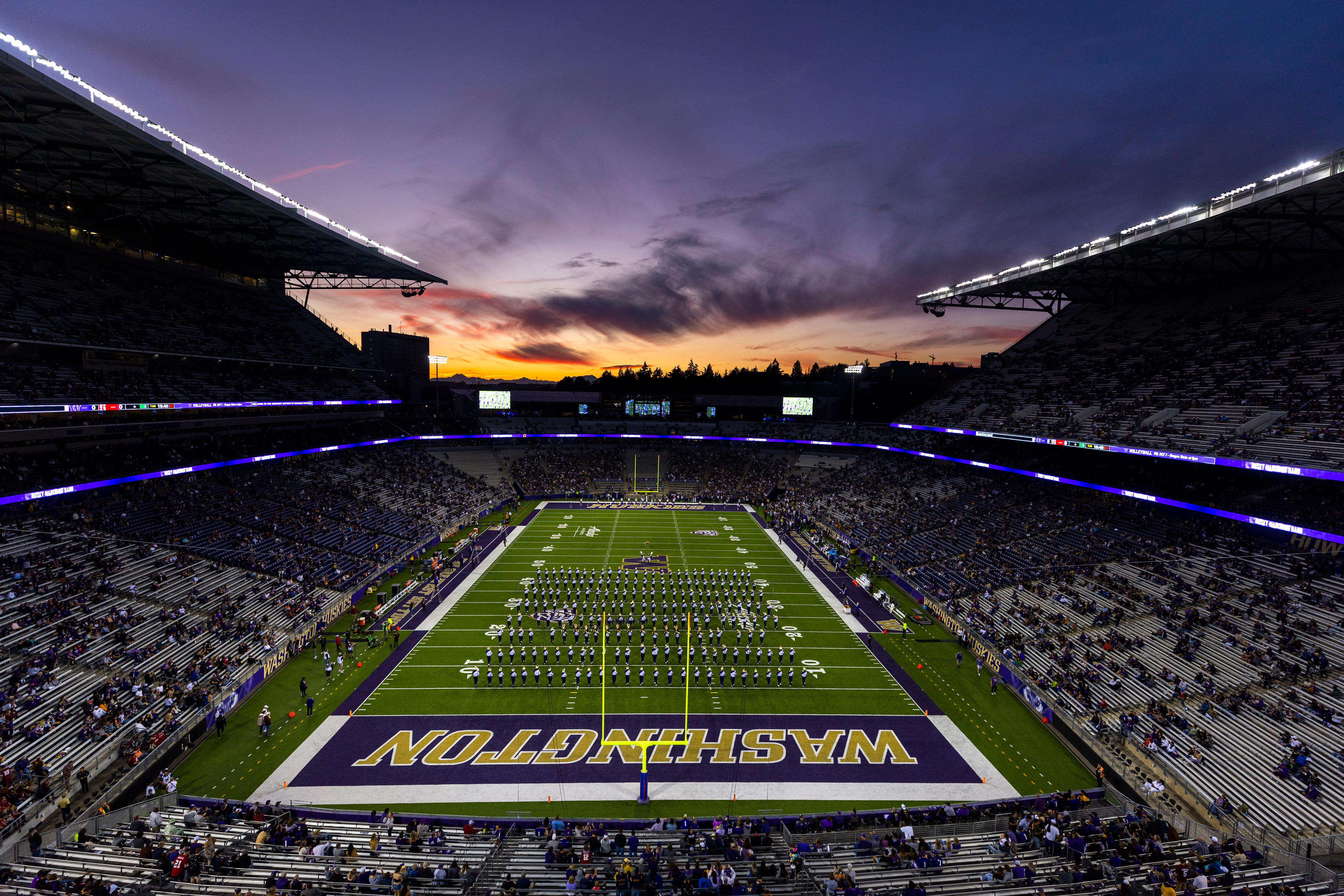
Capacity:
70,138
Opened:
1920
It’s hard to beat Husky Stadium’s backdrop, architecture, in-game environment and history. The stadium should be an immediate addition to any Big Ten fan’s must-visit list. It’s one of the true gems of the sport.
Get more (Washington) news, analysis and opinions on
Huskies Wire
5. Camp Randall Stadium (Wisconsin
Badgers
)
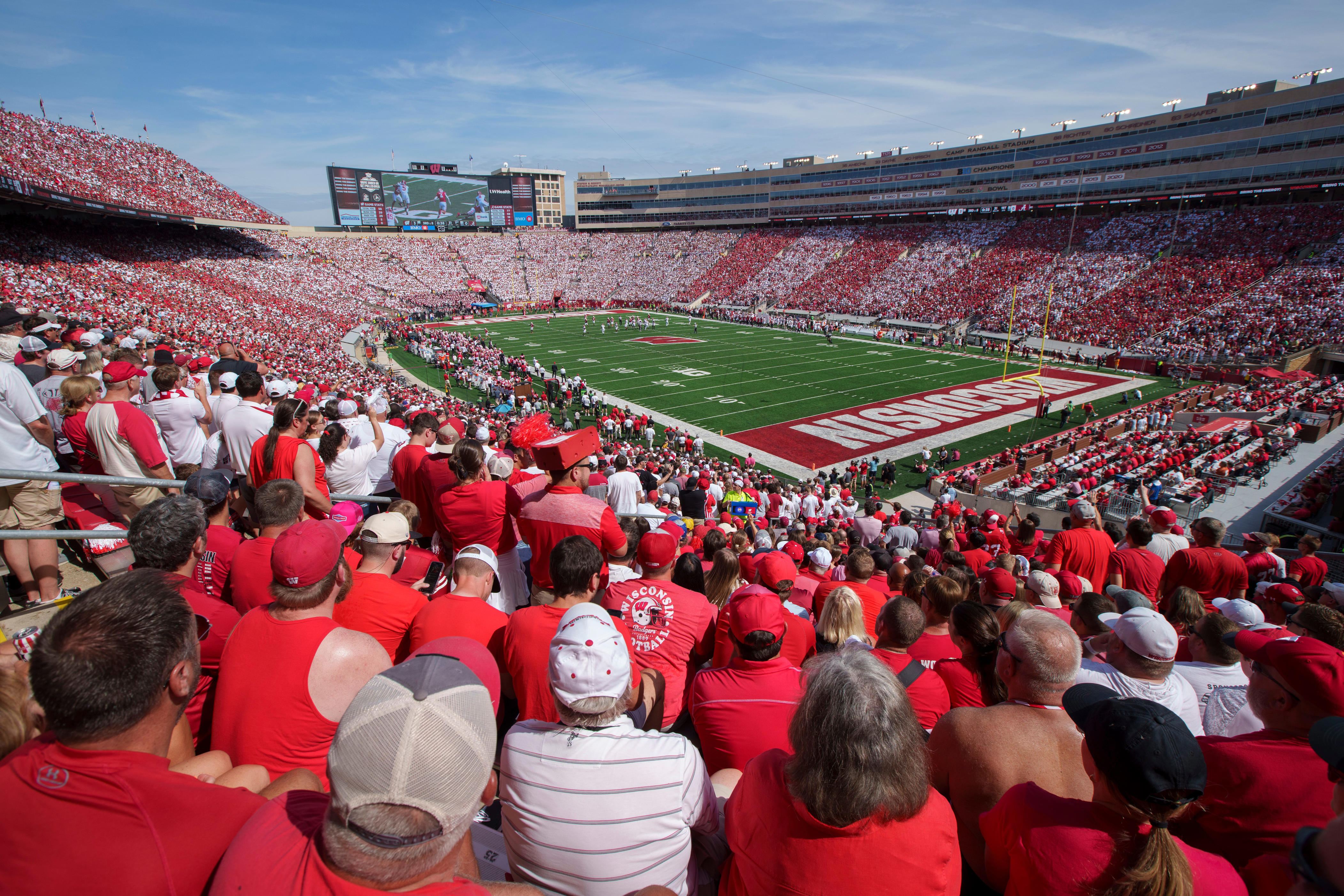
Capacity:
80,321
Opened:
1917
Wisconsin’s Camp Randall Stadium checks every necessary box. It is unique, rich with history, fosters a terrific in-game environment and has well-known traditions. All the venue is missing is a College Football Playoff game or two, an event that will showcase it on a national stage.
4. Autzen Stadium (Oregon
Ducks
)
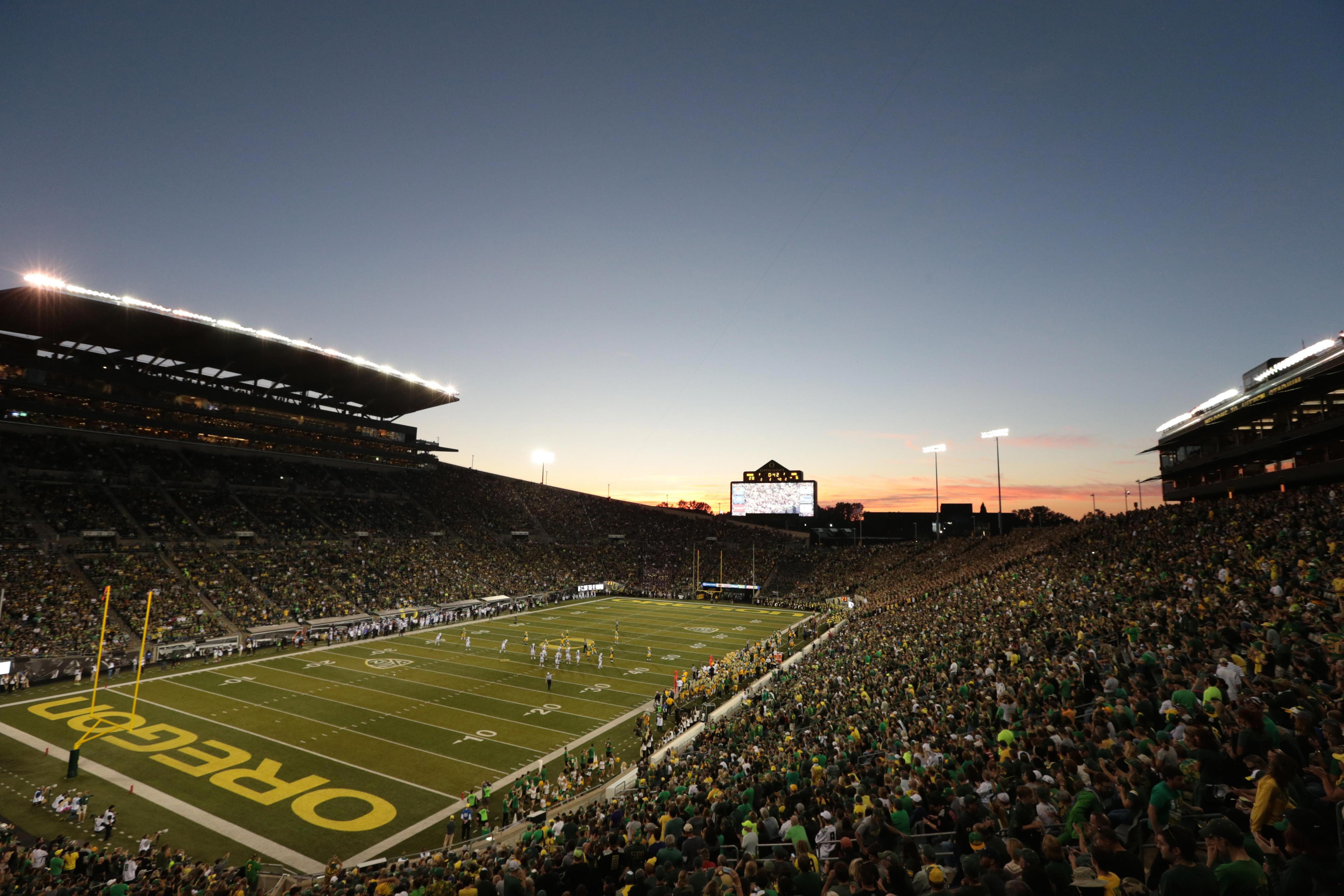
Capacity:
54,000
Opened:
1967
Autzen Stadium was on full display in 2024 as the Ducks went 13-0 during the regular season and captured the Big Ten title. Its atmosphere is impressive for a 54,000-seat stadium. Thanks to that environment and the team being a perennial conference contender, it should continue to be one of the toughest places to play in the sport.
Get more (Oregon) news, analysis and opinions on
Ducks Wire
3. Beaver Stadium (Penn State Nittany Lions)
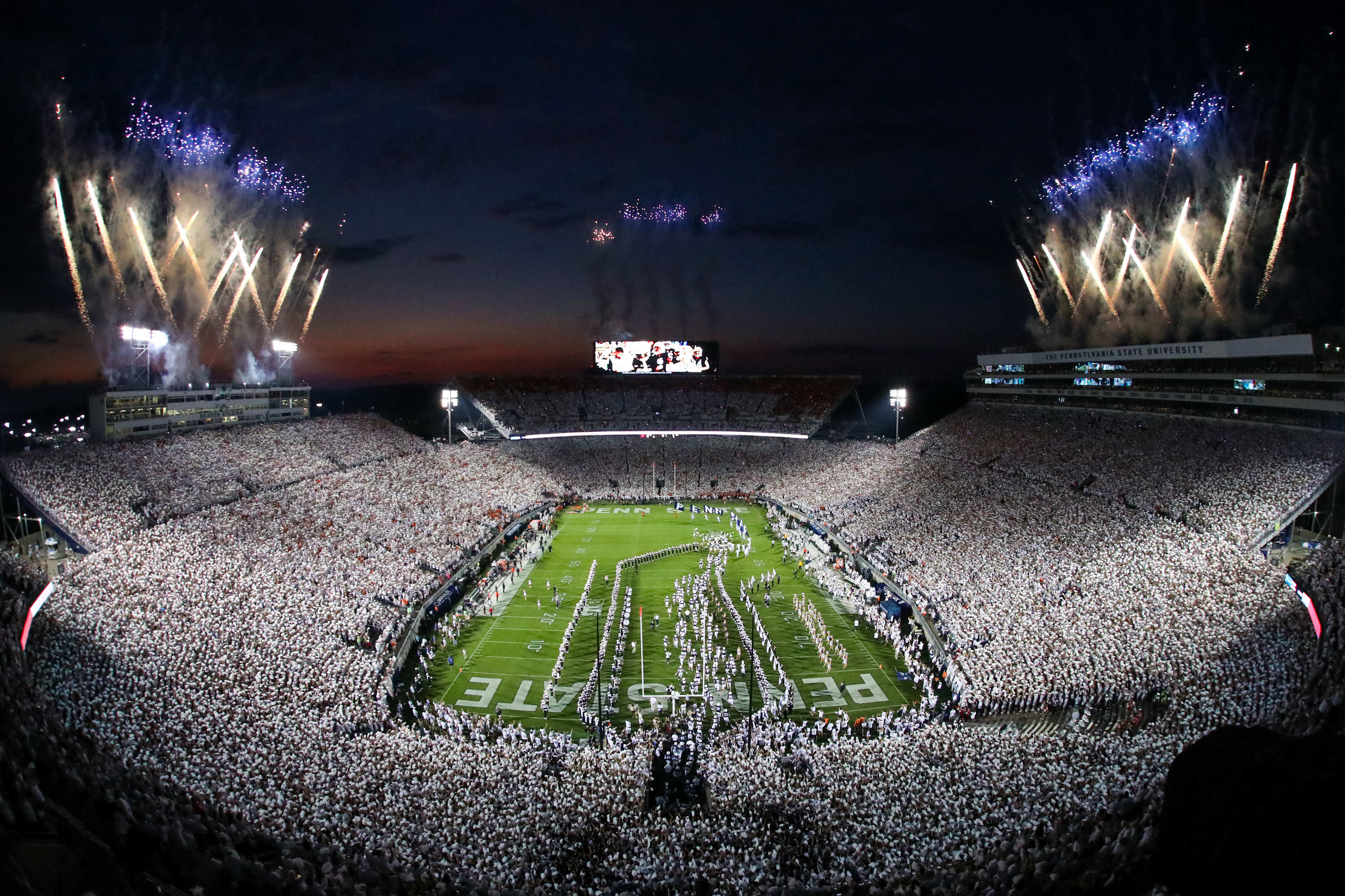
Capacity:
106,572
Opened:
1960
Beaver Stadium’s atmosphere and the home-field advantage it creates are second to none. The stadium combines sheer size with distinct architecture that gives it a unique feel — different from Michigan Stadium. During Penn State’s playoff win over SMU last season, we saw Beaver Stadium at its peak.
Get more (Penn State) news, analysis and opinions on
Nittany Lions Wire
2. Ohio Stadium (Ohio State Buckeyes)
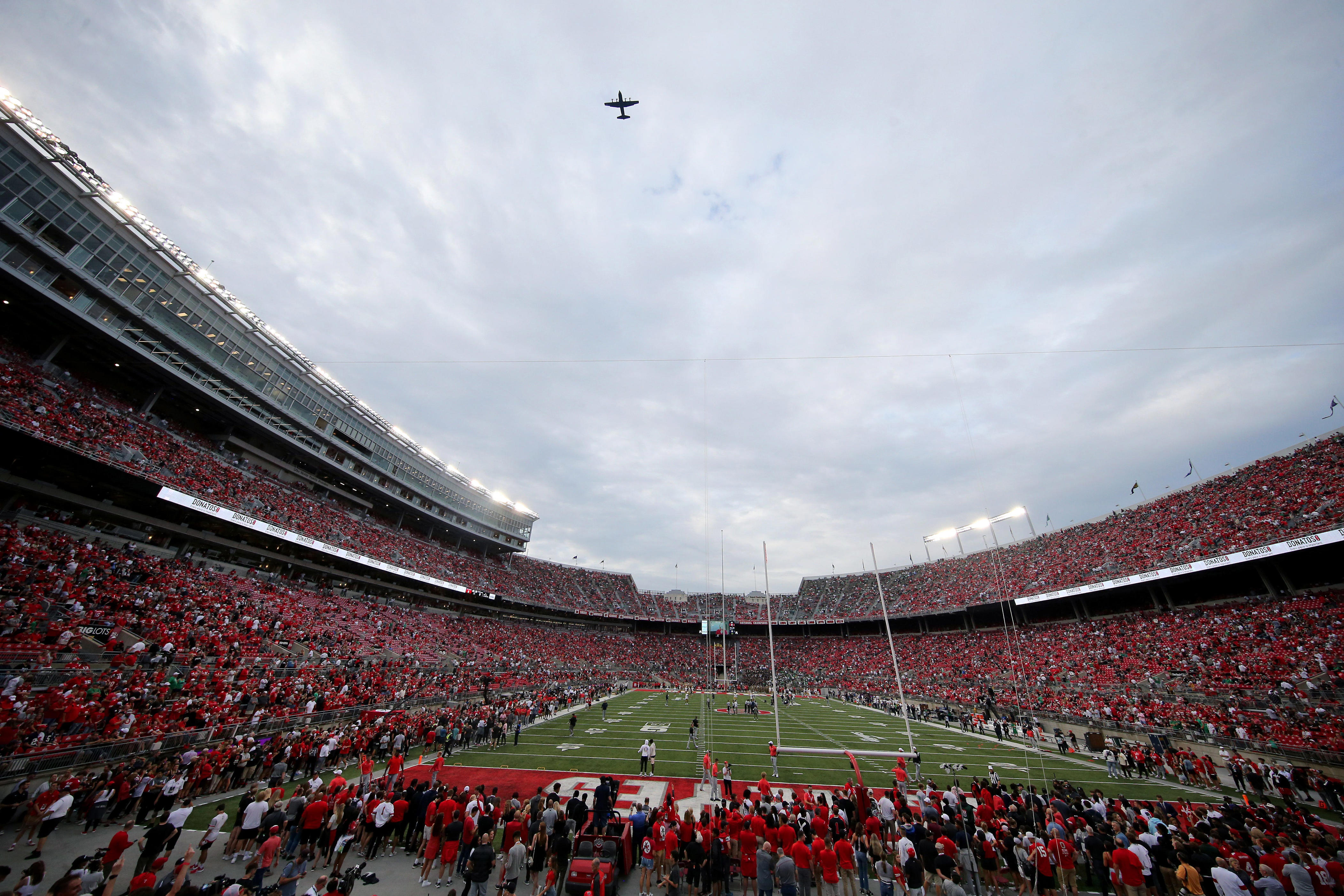
Capacity:
102,780
Opened:
1922
Not much needs to be written about Ohio Stadium. Like Beaver Stadium, it puts unique touches on a 100,000-seat stadium. That creates one of the best game-day environments in the world, regardless of the sport.
Get more (Ohio State) news, analysis and opinions on
Buckeyes Wire
1. Rose Bowl Stadium (UCLA
Bruins
)
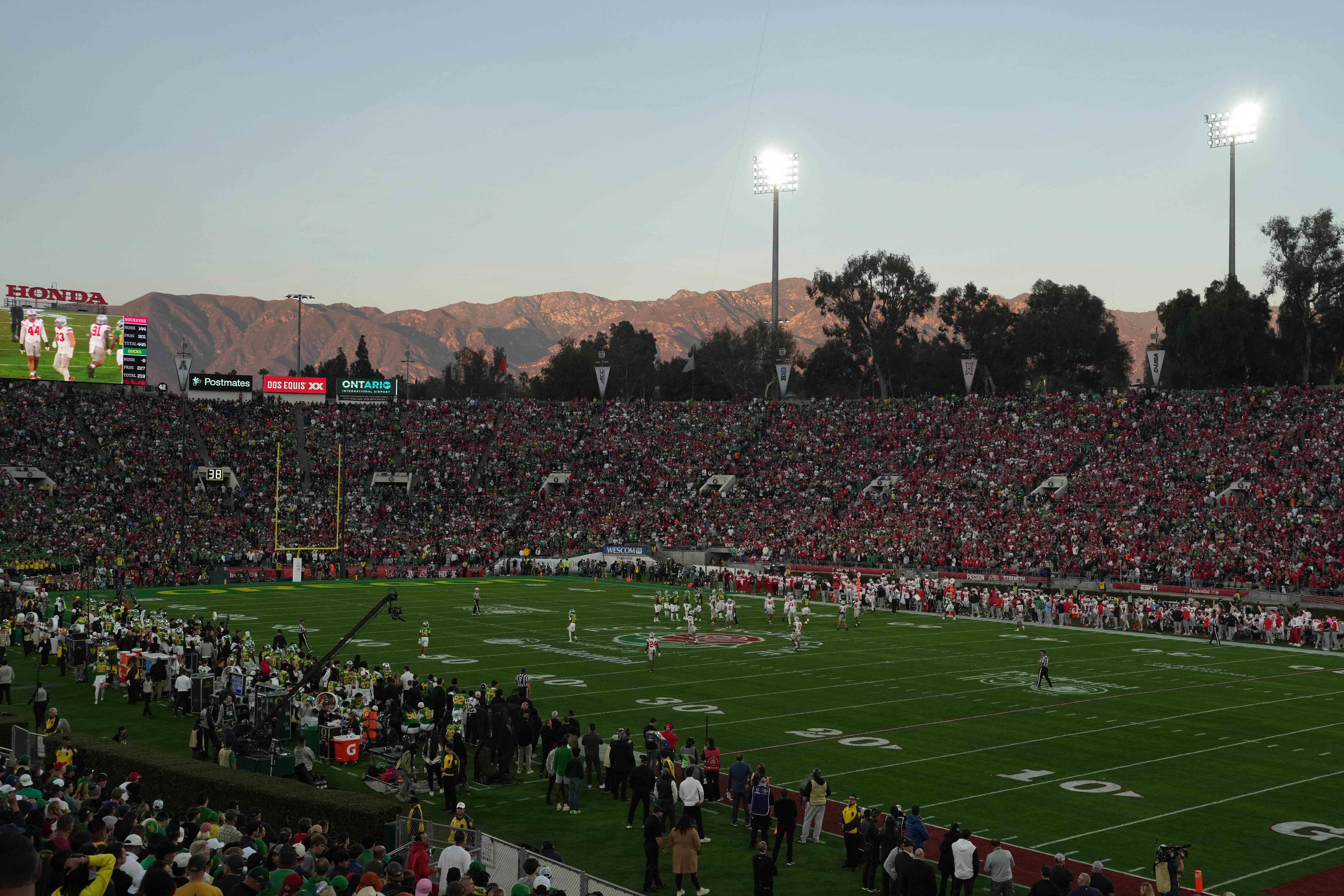
Capacity:
89,702
Opened:
1922
This ranking doesn’t have much to do with the Rose Bowl during UCLA home games, which can often lack energy and volume. The ranking also considers the Rose Bowl Game, arguably the best annual event on the college football calendar. The stadium would rank closer to the L.A. Coliseum if the Rose Bowl game were ignored.
Get more (UCLA) news, analysis and opinions on
UCLA Wire
Contact/Follow
@TheBadgersWire
on X (formerly Twitter) and like our page on
Facebook
to follow ongoing coverage of Wisconsin Badgers news, notes and opinion
This article originally appeared on Badgers Wire:
Re-ranking all 18 Big Ten football stadiums from worst to first
Share this content:







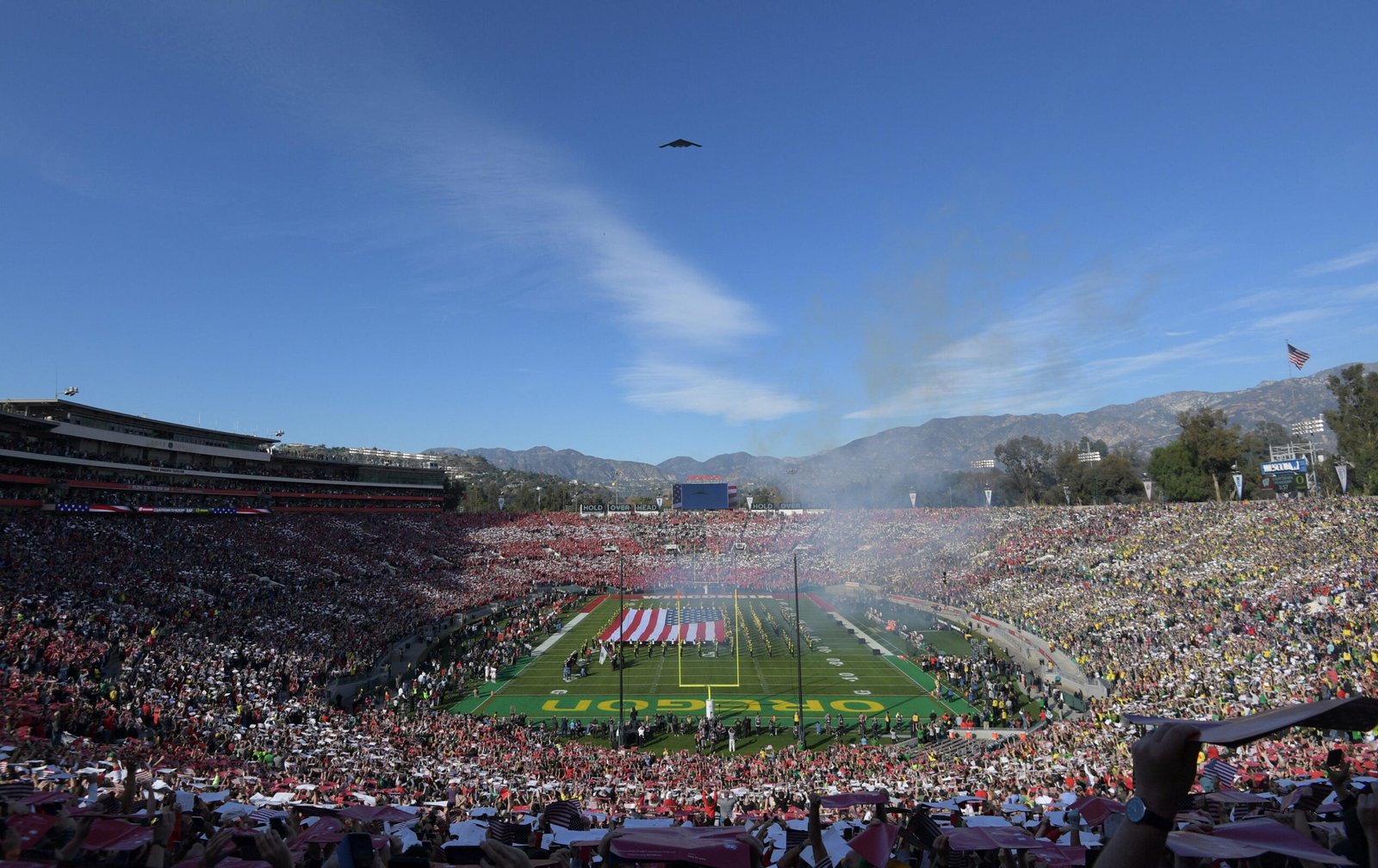

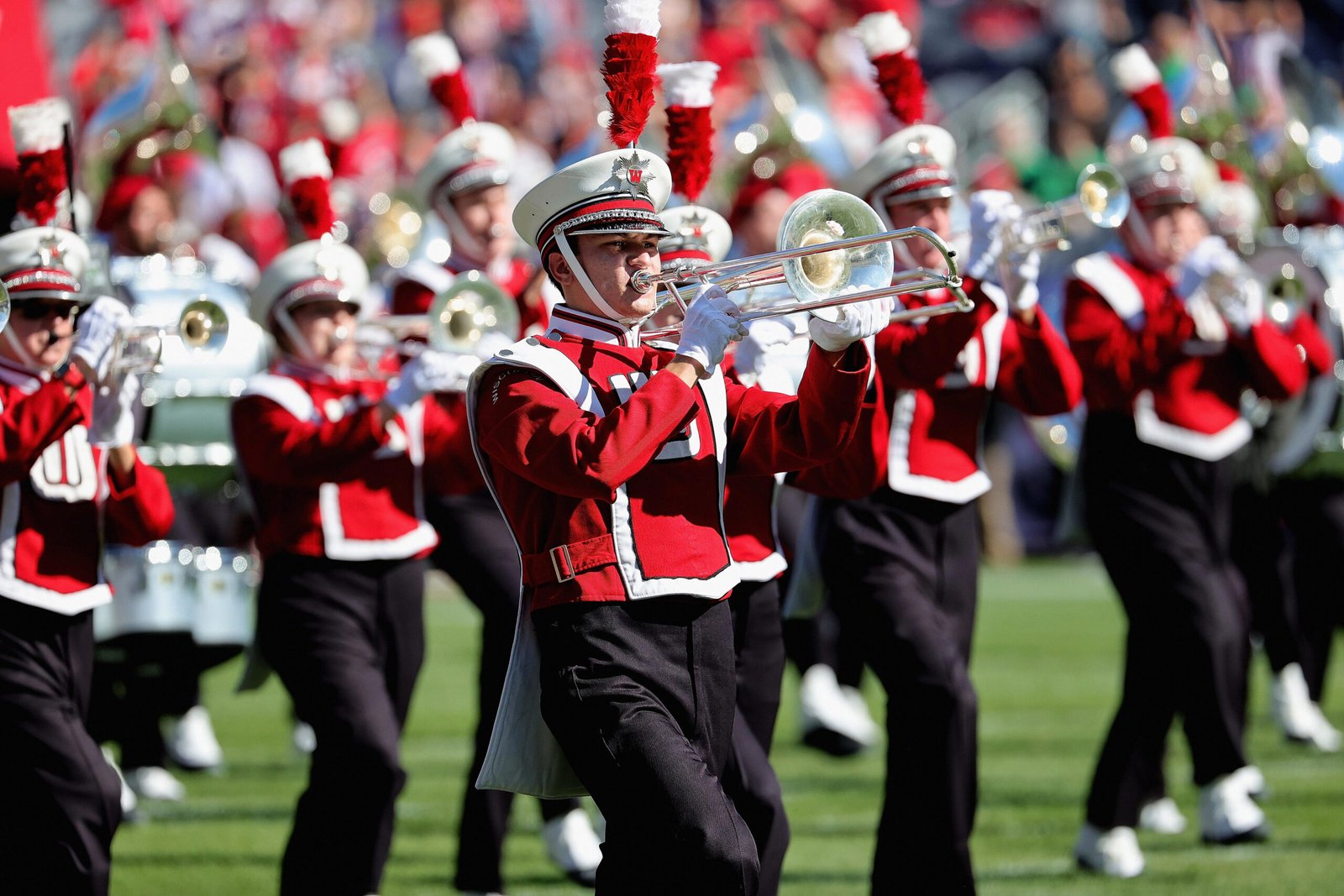











Post Comment